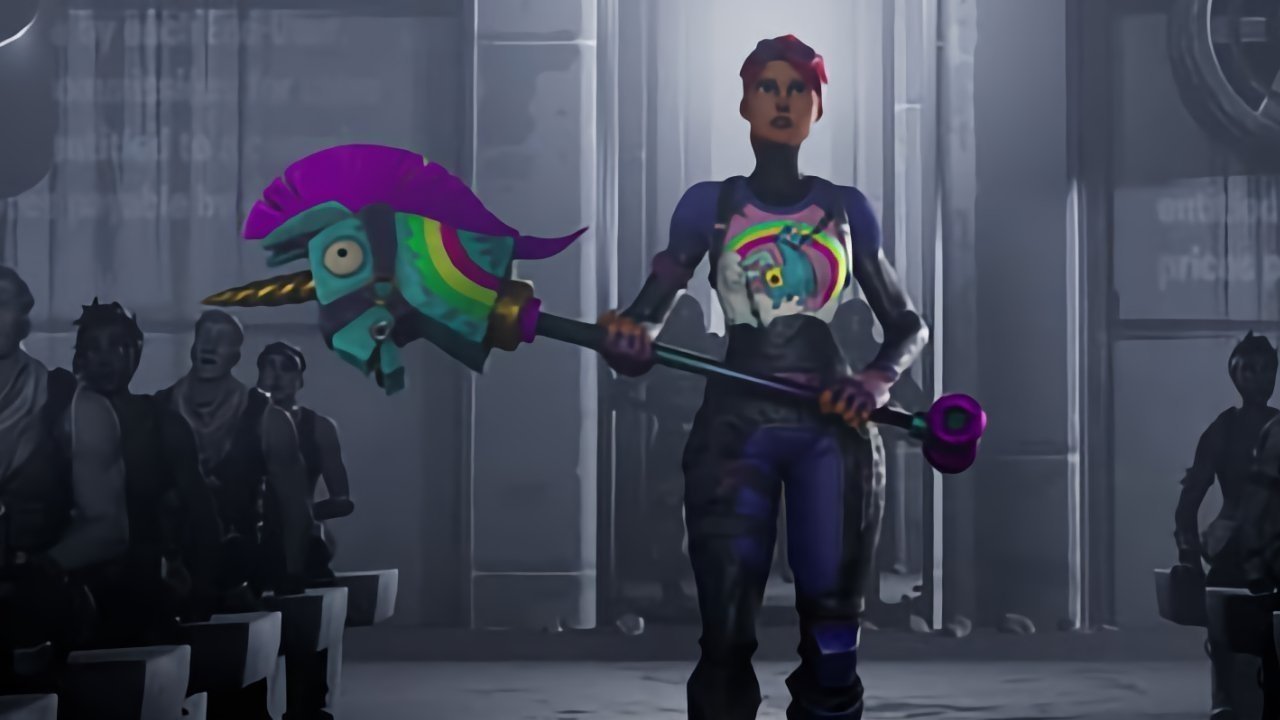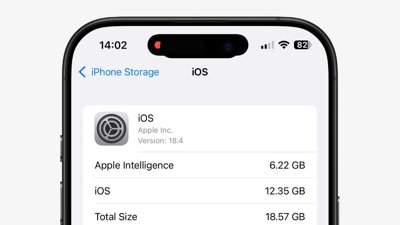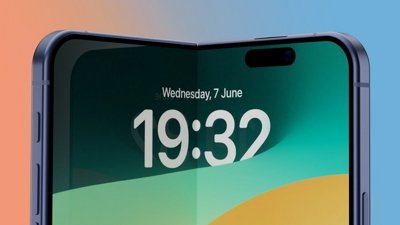At the same time it rails against Apple's payments through the App Store, Epic reaps 95% of the earnings of people participating in the new "Support a Creator" program.
Fortnite has been a rousing success for Epic Games, with the company benefiting from virtual currency purchases by players as well as from groups producing content specifically for the game. However, those groups of independent developers working on content certainly aren't earning high amounts from in-game purchases.
In a profile of the rising numbers of creators making content for Fortnite, The Verge reports that small companies are being created specifically for the third-party efforts. However, those teams have to rely on working with brands to earn any significant revenue, as opposed to enjoying Epic-derived funds.
Covering discussions with companies like Beyond Creative who have worked with companies such as Verizon and Nvidia, the projects can end up requiring a lot of work. According to Alliance Studios co-owner Simon Bell, a project with a brand can last anywhere between two weeks and six months, depending on the workload.
These deals are also lucrative, with Bell confirming contracts can be between "four to six figures" in size. In return, the brands have a map and content that players can experience.
An Epic pittance
While the projects are generally successful, with roughly half the playtime of Fortnite users spent in the custom maps instead of the main game, the developers aren't counting on earning much from the game directly.
Epic operates a Support-A-Creator program, which hands participants a Creator Code that players can enter into the game. Purchases made while a code is active on an account gives a small credit to the owner of that code.
The problem is that the amount that the creators receive can be quite low. It is so low, that in a FAQ about the program asking if creators could get rich from it, Epic warns "Please expect modest results."
The Support-A-Creator program is open to anyone with over 1,000 followers on a social media program, are aged 13 years or older, can accept the agreement, can abide by Creator Content Guidelines, and can take payment from the company's designated payments platform.
In exchange for agreeing to the terms, creators stand to earn a very low amount in return. In effect, creators can expect to earn $5 per $100 of in-game purchases by supporters using that creator's code.
Furthermore, creators have to earn at least $100 in a 12-month period to be eligible for a payment. If that $100 barrier isn't reached, "any attributed purchases and/or redemptions made by followers during that 12-month period will reset to zero."
The amount that creators stand to earn from Epic is extremely low compared to other storefronts. For Apple's App Store, it takes a 30% commission from purchases, 15% under certain circumstances, leaving developers with the lion's share of the transaction's value.
In April, Apple attacked Meta over a plan to charge developers up to 47.5% for virtual goods sold through the Meta Quest store, combining a 17.5% cut with a 30% platform fee.
Rival metaverse-style platform Roblox was also under fire in August 2021 for providing developers with a small cut of sales from its in-game sales. However, even that commission provided creators with around 35% of the full Robux value.
Epic's astoundingly low payment rate to creators is ironic, given that one of the reasons behind Epic Games' decision to withdraw Fortnite from the App Store and prompting a major legal fight was Apple's 30% commission, and Epic's intention to avoid paying it.
Fortnite's stinginess isn't just limited to creators of content. Epic Games has become the targets of criticism and lawsuits for allegedly stealing dance moves, which are then used as emotes in the game.
The financial difficulty of earning from Fortnite has pushed creators into working with brands to earn significant revenue, but they also wish there were more monetization options. For example, creating virtual items for sale in the digital storefront.
Epic CEO Tim Sweeney also hinted in April that Epic could offer more monetization options in the future. Sweeney commented that Epic was working on "Fortnite creator economy version 2 and 3" and to expect "big changes throughout the year."
 Malcolm Owen
Malcolm Owen

-m.jpg)






 William Gallagher
William Gallagher
 Sponsored Content
Sponsored Content





 Christine McKee
Christine McKee









44 Comments
Your Honor, the defense asks that this be entered into evidence as Exhibit A.
If Epic or anyone else wants to complain about Apple's 30% cut policy on using Apple's proprietary platform, fine.
So they take 95% from their platform, but sued Apple for taking the 15/30% from its platform. Hmmm
Now, now people. Let’s not let a bit of blatant hypocrisy taint our view of Epic fighting the good fight… /s